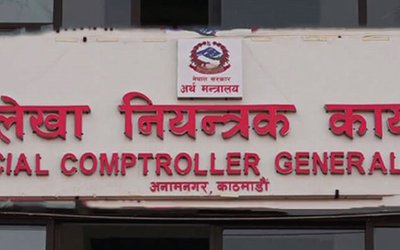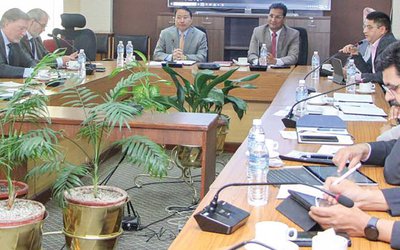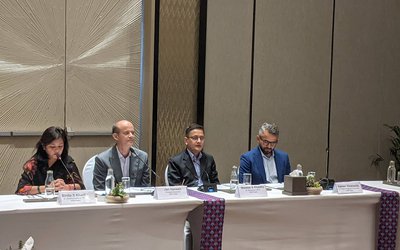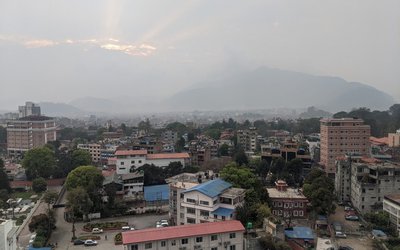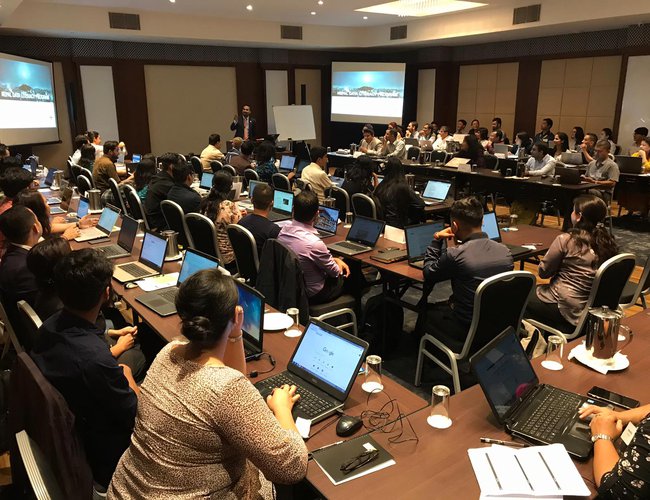
Over 75 Nepali professionals from the academia, media, and private and non-profit sectors successfully completed the first phase of the Nepal Data Literacy Program today.
The first of the three-phase data literacy program which began on 23 June provided 40 hours of classroom-based introductory lessons on data analysis, visualization and data-driven decision making and storytelling to participants.
An initiative of the World Bank’s ‘Partnership for Knowledge-based Poverty Reduction and Shared Prosperity Project’ supported by DFID, the Nepal Data Literacy Program aims to sustainably transfer data literacy skills to Nepali professionals to strengthen their capacity to proactively engage in evidence-based policy making, increase data literacy of Nepalis, and support federalism in the country.
“Data literacy is an essential skill in today’s data driven world, especially for Nepal as the country works towards implementing its development vision,” stated Faris Hadad-Zervos, World Bank Country Manager for Nepal. “This presents a unique opportunity to build a consortium of data institutions from the public and private sectors and civil society to support evidence-based policymaking and innovations for the economic growth and wellbeing the people of Nepal.”
The curriculum developed through this course has been published in an open source format to be adapted and used to increase data literacy capacity for groups of diverse backgrounds. With the completion of the training, the participants are expected to provide data literacy training to their colleagues within their organizations while representatives from the academia are expected to incorporate concepts from the data literacy program in their existing courses.
“I have been impressed to see participants’ engagement at the program and to hear them voice their dedication toward engaging in evidence-based policy-making discourse. It was also really heartening to see the impact of the training on participants who came in quite nervous but went away much more confident in their ability to use data with new skills they had gained,” reflected Craig Irwin, Statistics Advisor, DFID UK in Nepal.
The next two subsequent phases of the program scheduled for July to September of 2019 will cover intermediate lessons and guide participants in writing contextual analysis papers and blog posts to get hands-on experience with data-driven storytelling and decision making.
On the sidelines of the program, an interactive workshop on Open Government Data with officials from the Government of Nepal was also organized in Kathmandu on 26 June under this project in collaboration with the World Bank’s Public Financial Management Multi-Donor Trust Fund. The workshop discussed the importance of Open Government Data in accelerating government priorities and increasing access to government data in Nepal, together with ideas to pilot initiatives to increase quality use of government data in the country.
“Open Government Data has enormous potential in Nepal, and I look forward to partnering with the World Bank to make our data publicly available in a user-friendly way so everyone can benefit more from our data,” said Ramesh Siwakoti, Joint Financial Comptroller General.
- Weather Forecast: Partly To Generally Cloudy Gandaki, Lumbini, Karnali And Sudur Pashchim Provinces
- Apr 18, 2024
- FNCCI President Dhakal Urges To Invest In Tourism Infrastructure
- Apr 17, 2024
- Halesi Mahadev Temple and Ram Nawami Festival
- Apr 17, 2024
- The Breakthrough Of The Nagdhunga Main Tunnel: Pride Of Country
- Apr 17, 2024
- Ram Nawami 2024: Importance And Significant For Hindus
- Apr 17, 2024




